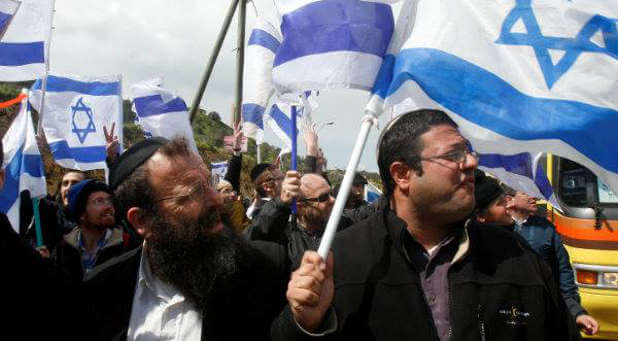These prayers speak of our awareness of God’s presence in our lives—whether we know it or not. The blessings state appreciation for God’s “everyday miracles.” We thank God for rising of the sun, for clothing the naked and healing the sick. It is quite moving. But there is a point in the recitation of these blessings where they shift from Universal to Particularistic concerns, and I can sometimes feel a sense of discomfort move over the congregation.
When we say: “Baruch atah Adonai, Eloheynu Melech Ha-Olam—she asini Yisrael. Blessed are You, Eternal our God, for making me a Jew.” I can see people pause for a moment.
Should we be saying this? Is this right? Why are we saying a prayer that’s so … “Jewish?” It’s OK to talk about Universal concepts like peace and harmony, fellowship and God’s love for humanity … but thanking God for making me a Jew? That seems almost out of place.
My friends, there is nothing wrong in a Jewish service about thanking God for the gift of our heritage. Yes, our non-Jewish friends and family may not feel included in these words, but that’s OK … they probably don’t mind. They are here because they love and support us. If we go to a Christian service, there are lots of prayers that we don’t or can’t say. This prayer—thanking God for making us Jewish doesn’t state that Judaism is better—but it does state that our heritage is a gift from God—and for that we are grateful.
The truth is—while we share so much in common with our non-Jewish friends, neighbors and relatives, we’re not all the same. We don’t pray the same way and we don’t necessarily agree on everything. And that’s a good thing. Diversity in an essential element for human interaction, for these reasons:
1. It is because we are different that we find ways to infuse our lives with understanding and growth through sharing our differences.
2. It is because we are different that we can reach out and learn from one another.
3. It is because we are different that we can share, celebrate and, when necessary, overcome our differences—thereby enriching our lives in the process.
Of course, there are those who have no tolerance for differences—who see the world through a prism of perfection and fundamentalist triumphalism. It is fiery fundamentalist rhetoric that is fueling rioting in the streets around the globe. It is intolerance and bigotry that produced an amateurish film that was designed to insult an entire religion. This is not who we are. And this is not who we should be allowed to frame the perspective around our differences.
There is nothing wrong with being proud of who we are and what we stand for. And that goes double for the State of Israel. When it comes to Israel, instead of being defensive, we have the right and responsibility to be proud of her successes.
No, Israel is not perfect. There are many serious issues that need to be confronted. But the Jewish State is not a pariah either.












